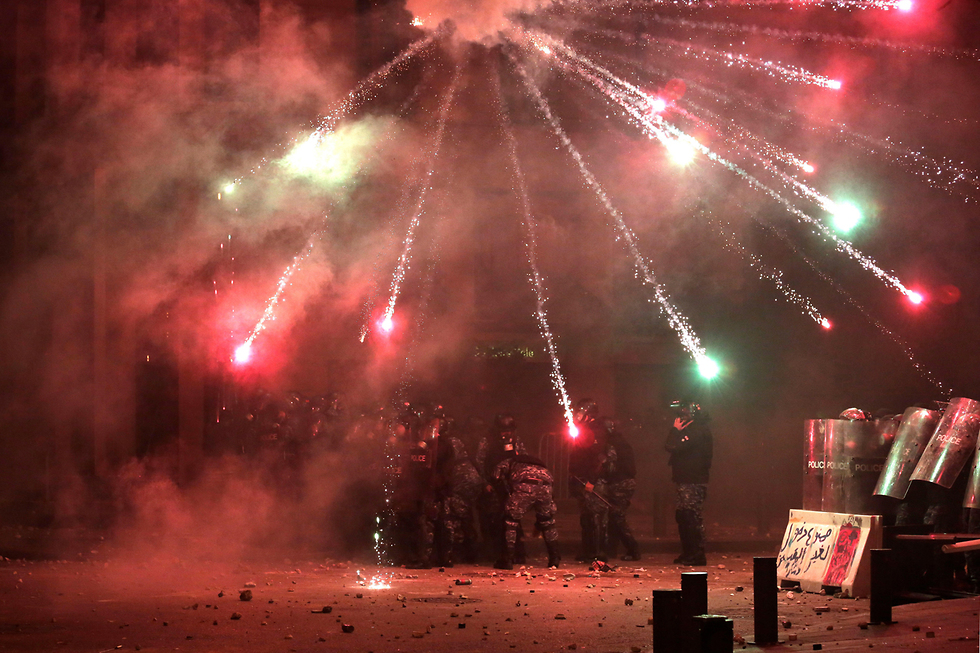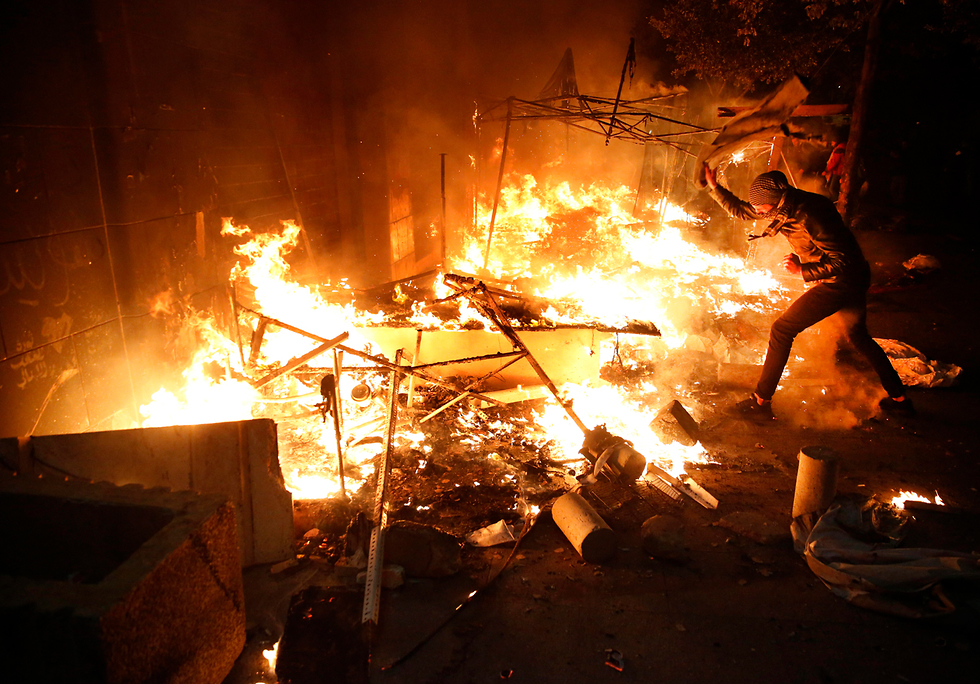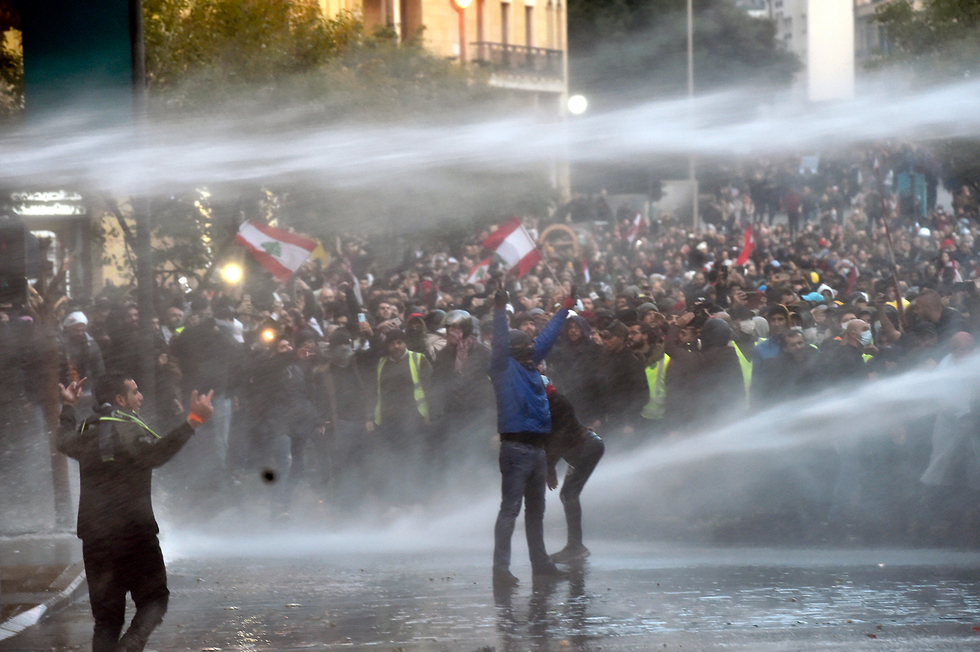Getting your Trinity Audio player ready...
Lebanese security forces fired water cannons, rubber bullets and tear gas on Sunday to try to break up stone-throwing protesters in Beirut, which has been rocked by some of the worst violence since unrest erupted in October.
Sunday's confrontation broke out near parliament a day after more than 370 people were wounded, the biggest casualty toll since the protests against the ruling elite began.
Unrest in the capital this week has deepened the multi-faceted crisis sweeping Lebanon as it grapples with financial strains that have sunk the currency, pushed up prices and driven banks to impose capital controls.
Politicians have failed to agree on a government or an economic rescue plan since the protests pushed Saad al-Hariri to quit as prime minister in October.
"We have gone from being a country we used to call "the Switzerland of the east" to a country ranked at the bottom in everything," said housewife Rezzan Barraj, 47, at Sunday night's protest. "It's clear that the more they [security forces] step up their violence, the more people's strength and determination grow."
A Reuters witness saw police fire rubber bullets. The Lebanese Red Cross said it treated 52 people and hospitalized 38.
Hundreds of people yelled "revolution" in the commercial district of the capital. Protesters pelted riot police with stones and fireworks.
Some tried to climb over barbed wire and fencing to storm a heavily barricaded part of central Beirut that where parliament resides. One man jabbed police with a pole across the barriers as the violence escalated.
Zeina Ibrahim, 37, an office manager, said protesters had faced violence from police and attacks from supporters of the sectarian, dominant parties.
"Violence only breeds violence," Ibrahim said. "After all this time, all these months...I don't blame protesters at all if they move bit by bit towards violence."
The Internal Security Forces (ISF) urged people to remain calm and said otherwise it would be forced to repel them.
The interior and defense ministers, the army and other security chiefs were set to meet at the presidential palace on Monday.
Human Rights Watch on Saturday called for an end to a "culture of impunity for abuse" by police, which it said fired tear gas canisters at some people's heads.
Interior Minister Raya al-Hassan said people had the right to protest but it was unacceptable to "blatantly assault" security forces.
Protesters have also turned their anger on the banks - which have curbed access to savings - with some smashing the facade of the banking association on Saturday night.
Hassan Diab, who was designated prime minister with the backing of Hezbollah and its allies last month, met with President Michel Aoun on Sunday.
A senior political source told Reuters the government line-up would be finalized on Sunday, but Diab left without commenting as a cabinet deal remained elusive.




